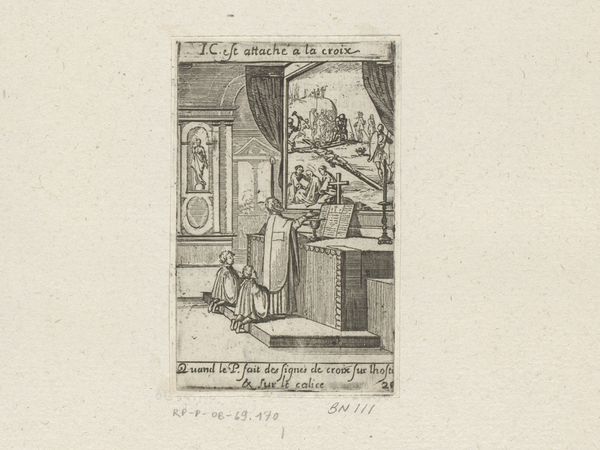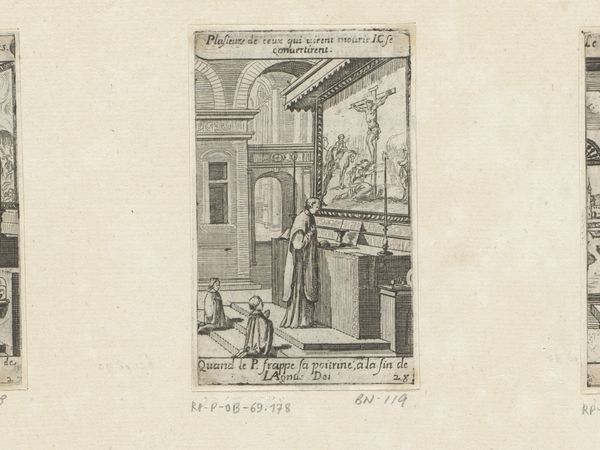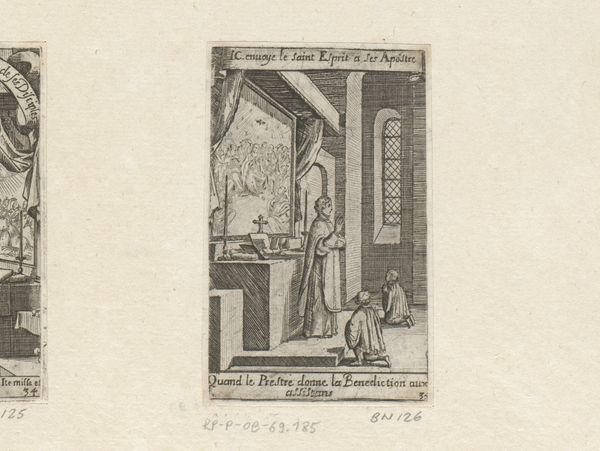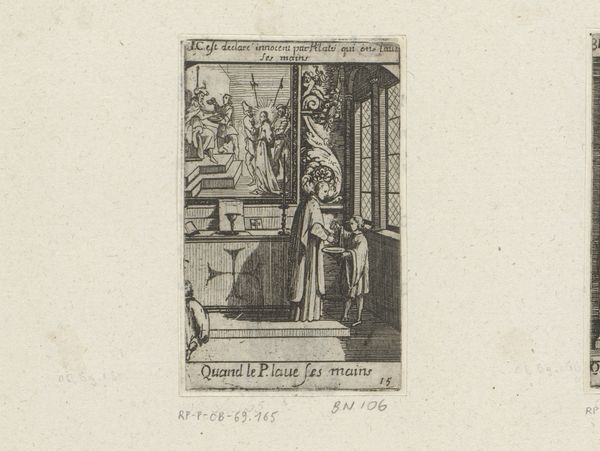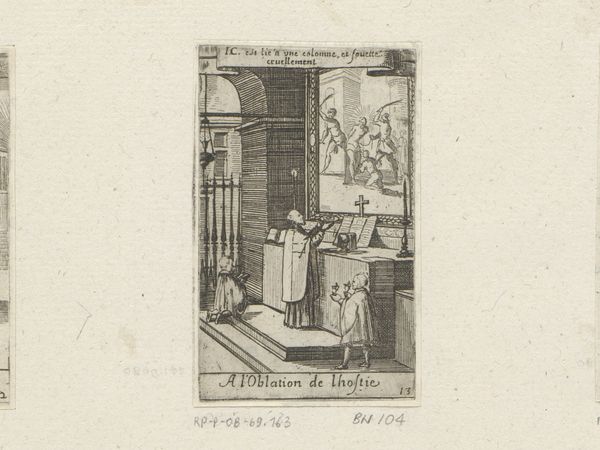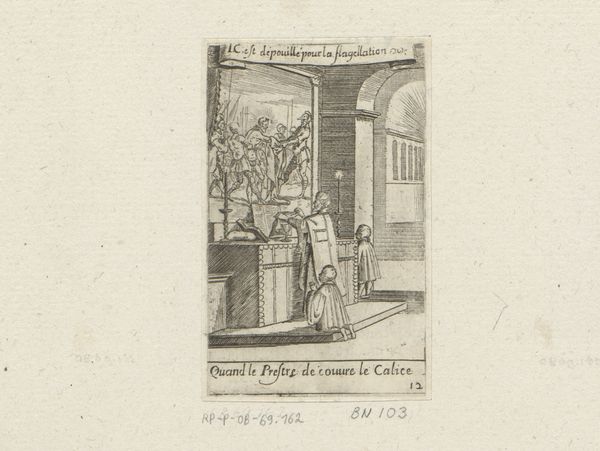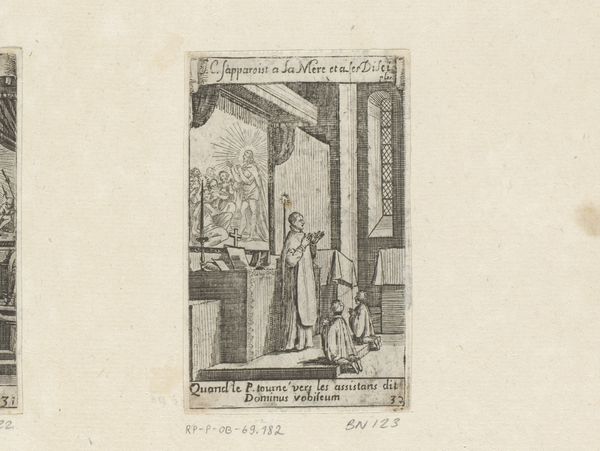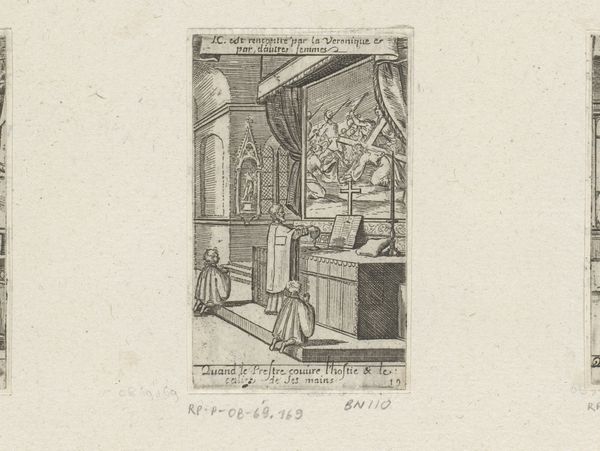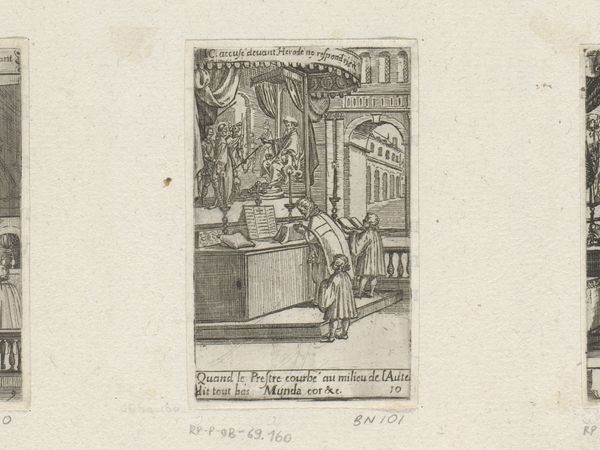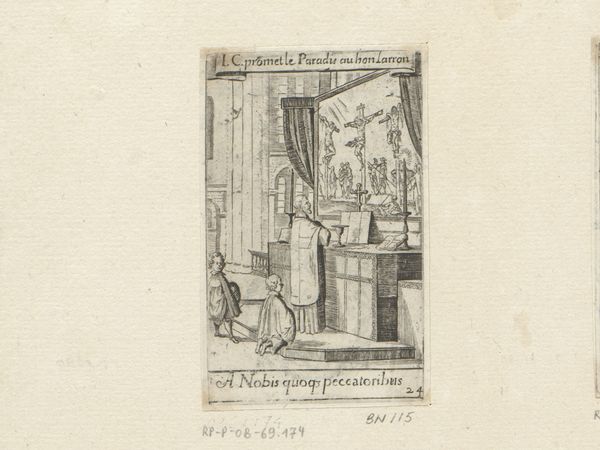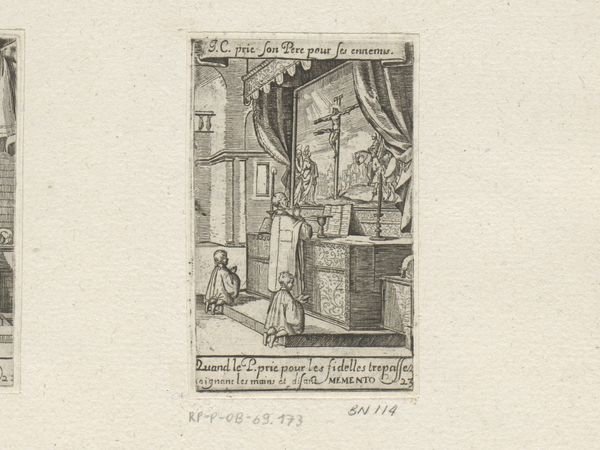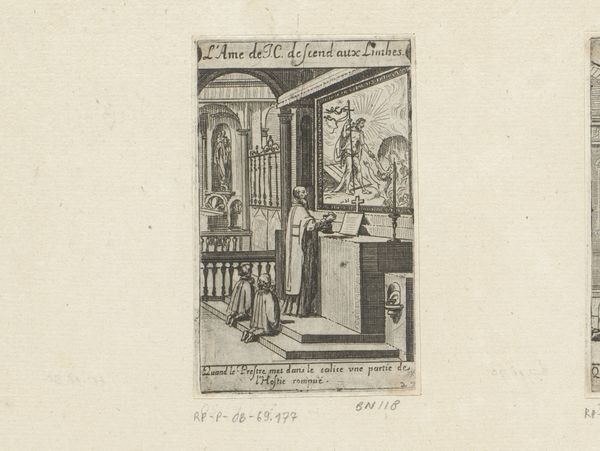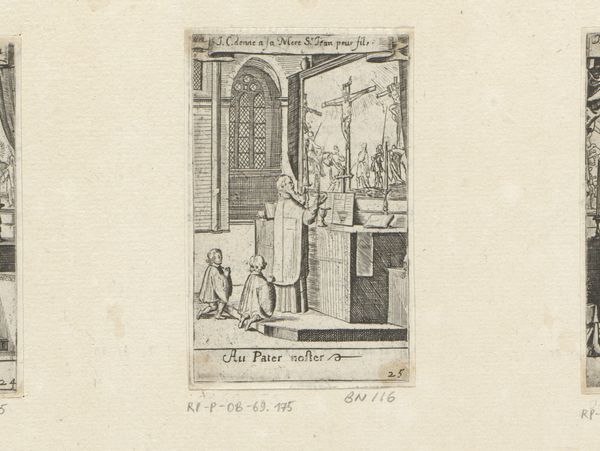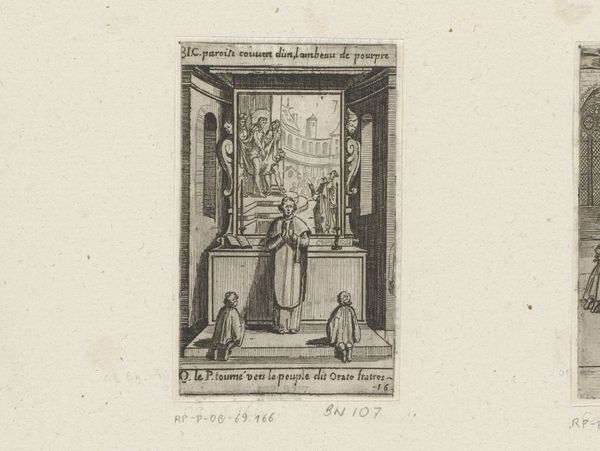
print, etching
#
baroque
# print
#
etching
#
figuration
#
line
#
history-painting
Dimensions: height 84 mm, width 52 mm
Copyright: Rijks Museum: Open Domain
Curator: We're looking at "Priest with Two Altar Boys before an Altar," a 1661 etching by Sébastien Leclerc I, here at the Rijksmuseum. Editor: It feels very still, very formal. Almost like a theatrical stage, set with characters posed precisely within this tightly rendered space. Curator: That stillness is quite characteristic of Baroque printmaking. Leclerc was deeply involved in illustrating aspects of Louis XIV’s reign, and images like this showcase the formalized aspects of courtly life bleeding into religious depictions. Consider, for instance, how the ritual is carefully ordered. Editor: It is orderly but to a fault. It feels stiff. What’s the intended audience? The very specific title "Quand le P. communie" makes me think it's supposed to portray the Catholic church in good light? I suppose that is why its message does not sit right with me. Curator: These prints circulated widely. It’s plausible its distribution served both devotional purposes and political signaling. The controlled, ordered depiction of religious practice mirrored the state’s desire for social control and visual display of piety under Louis XIV, right? The image becomes propaganda. Editor: And note the heavy, dark lines around the figures—they give a stark, almost brutal feeling despite the supposedly holy scene. Is that characteristic of line etching in this period? I do appreciate the attempt to create the atmosphere of interior light but its visual intent doesn't match with the textual purpose behind it. Curator: Quite typical for Leclerc. But your observation regarding the starkness draws attention to another matter. Leclerc wasn’t merely illustrating a scene; he was framing a specific narrative, influencing perception through visual emphasis. The controlled line work directs our eye. Editor: A very deliberate ordering, then. Thank you. It's changed how I initially felt about this. Curator: Likewise, your reflections provided new appreciation to Leclerc’s art.
Comments
No comments
Be the first to comment and join the conversation on the ultimate creative platform.
